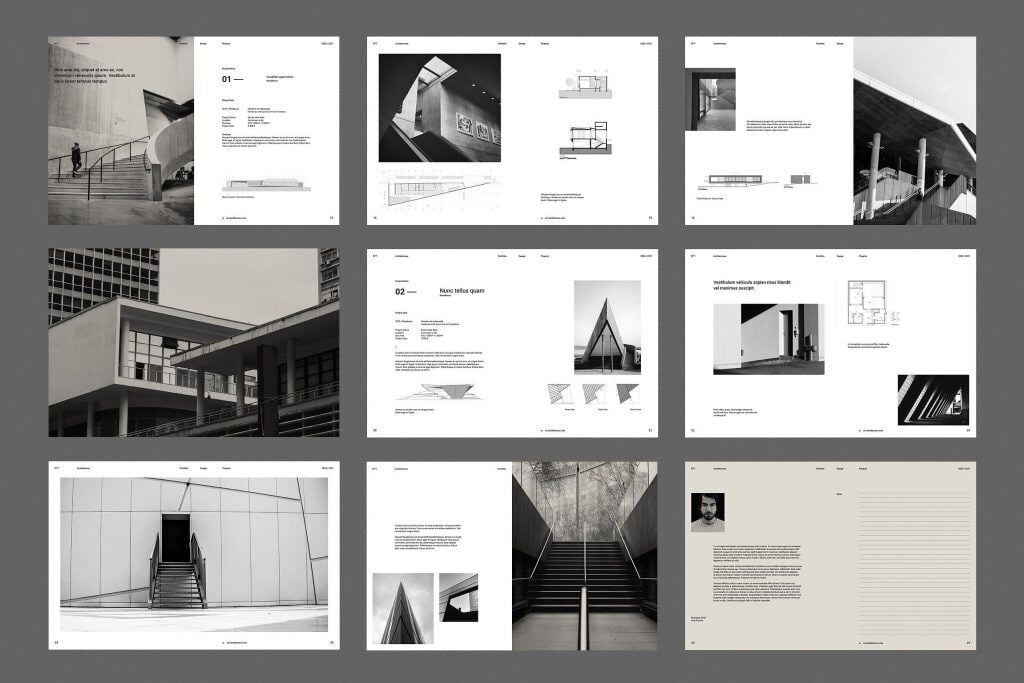
Landing that “perfect” job in the field of civil engineering is not an easy feat. After completing your undergraduate degree course, you have to go through a rigorous process of research and scrutiny. From identifying a niche of your liking and shortlisting the companies you want to work with to preparing your resume and applying to firms- it's all one herculean task. And after all that effort, the real challenge begins when you start giving interviews.
What to Expect at a Civil Engineering Interview?

Civil engineering interview questions are usually a blend of technical and personal development topics. An interviewer will gauge your suitability for a role based on your interests, sincerity and commitment to academics, and, most importantly, your answers. The confidence, ease, and enthusiasm with which you present your answers will ultimately determine whether or not you land your dream job. So, below is a list of some of the most likely asked questions, as well as basic interview questions for a civil engineering interview, along with sample answers. But before that, you can also check out exactly what AECO companies are looking for in their employees.
Also Check : In-Demand Civil Engineering Specialisations
What are the 10 Most Asked Civil Engineering Interview Questions
You can ace your civil engineering interview by preparing for certain standard questions well in advance. This will help you to feel more comfortable during the interview while improving your chances of getting selected for the role. Let’s look at the top 7 civil engineering interview questions with answers.
1. Why Do You Want to Work With Us?

This is one of the key civil engineering job interview questions that seek to gauge your interest in the company, its projects, and whether you've conducted thorough research. The interviewer wants to understand if your career goals align with the opportunities the company offers.
How to Prepare Your Answer
- Study the company's website, recent news, projects, and culture. Understand their mission, values, and the projects they specialise in.
- Identify how your career aspirations, skills, and values align with the company's mission and projects.
- Relate your past experiences and skills to the company's needs. Explain how your background makes you an ideal candidate for their projects.
Sample Answer
"I'm highly motivated to join [Company Name] because of its impressive track record in delivering groundbreaking projects, especially the recent completion of [mention a specific project]. What truly excites me about [Company Name] is its commitment to innovation and sustainability, values that align perfectly with my career aspirations. I believe that by working here, I can not only contribute to cutting-edge projects but also continue to grow professionally in an environment that values excellence."
2. What are the Biggest Challenges Faced by Civil Engineers?

This is one of the most common civil engineering interview questions that assess your awareness of industry challenges and your problem-solving abilities. The interviewer is interested in whether you understand the broader context of the domain in which you'll be working.
How to Prepare Your Answer
- Keep up with industry trends and challenges through reputable sources like industry publications, conferences, and online forums.
- Reflect on your past experiences in civil engineering and consider how you've addressed or overcome challenges. Be ready to draw on real-world examples.
- While discussing challenges, consider potential solutions or approaches you or your industry peers have encountered.
Sample Answer
"Civil engineering currently grapples with multifaceted challenges. Ageing infrastructure, rapid urbanisation, lack of new-age technology adoption such as automation and Building Information Modeling (BIM), and environmental sustainability are some prominent concerns. Climate change poses an additional layer of complexity. Addressing these challenges requires civil engineers to adopt innovative materials and sustainable design practices and adapt to evolving technology and building regulations while ensuring safety and resilience in all projects."
3. How Do You Maintain a Safe Work Environment On-Site?

As one of the most likely civil engineering interview questions, this one evaluates your commitment to safety, a critical aspect of civil engineering projects. The interviewer wants to ensure that you prioritise the well-being of the team and adhere to industry standards.
How to Prepare Your Answer
- Familiarise yourself with safety regulations relevant to your region, such as Occupational Safety and Health (OSH) standards in India.
- Think about your past projects and experiences where safety was a priority. Recall specific instances where you enforced safety measures.
- Be prepared to explain the safety protocols you follow on construction sites, from initial planning to daily monitoring.
Sample Answer
“Safety is a top priority in civil engineering, and I take it very seriously. To maintain a safe work environment on site, I begin by ensuring that all team members are well-versed in safety protocols and guidelines and are equipped with safety equipment. Regular safety briefings are conducted, and everyone is provided with the necessary personal protective equipment. I encourage open communication among team members, fostering an environment where safety concerns are reported and addressed promptly. Furthermore, I continuously monitor and enforce compliance with safety regulations throughout the project's lifecycle."
4. Can You Tell Us Something About Yourself and Your Work Experience?

This question provides an opportunity for you to introduce yourself, highlight your relevant work experience, and demonstrate how you align with the position. By asking one of such fundamental civil engineering interview questions, the interviewer wants to get to know you better and assess your qualifications.
How to Prepare Your Answer
- Focus on experiences and skills directly relevant to the job you're applying for. Tailor your response to match the job description.
- Prepare a concise and well-structured summary of your career. Highlight key accomplishments, roles, and projects that showcase your expertise.
- Emphasise specific achievements, such as successful projects, cost savings, or innovations, to demonstrate your value to potential employers.
Sample Answer
"I'm a dedicated civil engineer with over [X years] of experience in various facets of civil engineering, including structural design, project management, and site supervision. During my tenure at [previous company], I successfully managed [mention a significant project], which not only met all technical specifications but also came in under budget and ahead of schedule. I thrive in collaborative environments and am deeply passionate about delivering high-quality results. My diverse background equips me to handle the complex challenges faced in the civil engineering field."
5. What are the Main Responsibilities of a Civil Engineer On Site?
This question assesses your understanding of the role and its responsibilities. By asking process-oriented civil engineering interview questions, the interviewer wants to confirm that you have a clear grasp of the day-to-day tasks associated with the job.
How to Prepare Your Answer
- Highlight the most critical tasks and responsibilities that are directly related to the role you're interviewing for.
- Offer specific examples or scenarios from your past experiences demonstrating how you've successfully handled similar responsibilities.
Sample Answer
"A civil engineer onsite plays a pivotal role in the successful execution of projects. The typical responsibilities include supervising construction activities, ensuring strict compliance with project specifications and relevant regulations, managing budgets and schedules, coordinating with various stakeholders, and addressing any technical issues that may arise during construction. The ability to multitask, solve problems, and communicate effectively is crucial in ensuring the smooth progress of a project from inception to completion."
6. What are the Factors Affecting the Strength of Concrete?

This question tests your knowledge of a fundamental aspect of civil engineering. With such technical civil engineering interview questions, the interviewer wants to assess your grasp of core principles in the field.
How to Prepare Your Answer
- Review fundamental concepts related to concrete strength, such as the water-cement ratio, curing methods, aggregates, and admixtures.
- Practice explaining technical details in a clear and understandable manner for those who may not have a deep knowledge of the subject.
Sample Answer
"Several key factors influence the strength of concrete. These include the water-cement ratio, the curing conditions, the quality of aggregates, the mix design, and the presence of additives or admixtures. Properly balancing these factors is essential for achieving the desired concrete strength for a given project. Understanding the intricacies of these elements allows civil engineers to tailor concrete mixes to specific project requirements, ensuring structural integrity and durability."
7. Where Do You See Yourself After 5 or 10 Years Into Your Career?

As one of the most popular civil engineering interview questions, this one aims to understand your career ambitions and whether they align with the company's long-term goals. The interviewer wants to determine if you are a long-term fit for the organisation.
How to Prepare Your Answer
- Consider your long-term career goals and how they align with your field of expertise and the industry.
- Understand the company's growth trajectory and its potential for career advancement. Relate your aspirations to the company's future.
- Express your commitment to continuous learning and professional development as you progress in your career.
Sample Answer
"In the next 5 to 10 years, I envision myself as a senior civil engineer, potentially taking on a leadership role in project management. I am also keen on obtaining additional certifications in sustainable design and construction to contribute more to environmentally responsible projects. My aspiration is to become an integral part of [Company Name]'s success story, helping the company achieve its long-term growth objectives. I am committed to continuous learning and professional development to stay at the forefront of the field."
Also Read : Best BIM Courses for Civil Engineers in Bangalore
8. What design software do you have experience with?

This is another popular question that is asked to understand tech and software knowledge. This question plays a crucial role in judging the alignment of the candidate with the company’s goal.
How to Prepare Your Answer
- Be sure and confident about the software you mention as they can cross-question you.
- Emphasise real-world uses of the software as they show that you have a practical understanding of that software.
Sample Answer
I am proficient in using software such as [Mention Software] for structural design and analysis. These tools have been crucial in streamlining project workflows and ensuring accurate results.
9. How do you stay updated with the latest developments and technologies in civil engineering?
Staying updated with the latest developments in civil engineering is essential for delivering innovative solutions.
How to Prepare Your Answer
- Mention particular methods or resources you use to stay informed.
- Show that you actively seek out new information and learning opportunities.
Sample Answer
To stay current with advancements in civil engineering, I regularly read industry publications such as [Name]. I also participate in webinars and workshops hosted by professional organizations like [Name]. Engaging in online forums and following industry experts on platforms like LinkedIn allows me to discuss emerging trends and technologies with peers.
10. What measures do you take to ensure quality control in civil engineering projects?
This question assesses your commitment to maintaining high standards and adhering to safety protocols in your work.
How to Prepare Your Answer
- Discuss the quality control and safety measures you implement during projects.
- Show your knowledge of relevant standards and regulations.
Sample Answer
"To ensure quality and safety in my civil engineering projects, I implement a comprehensive quality management system that includes regular inspections, material testing, and adherence to industry standards. I conduct risk assessments to identify potential hazards and develop plans accordingly. Additionally, I ensure that all team members are trained in safety protocols and that we comply with local building codes and environmental regulations.”
How Can Civil Engineers Effectively Explain Their Portfolio in an Interview

A portfolio is a powerful tool for civil engineers to showcase their skills, experiences, and accomplishments during an interview. It serves as a visual representation of their expertise and can significantly impact the impression they make on potential employers. Mentioned below are some key strategies for civil engineers to effectively explain their portfolio.
1. Start with a Brief Overview
Begin by providing a concise introduction to your portfolio. Mention the number of projects included and the range of your experience. This sets the stage for a comprehensive discussion.
2. Highlight Key Projects
Select a few standout projects from your portfolio relevant to the position you're interviewing for. Focus on a variety of projects to demonstrate your versatility.
3. Explain Your Role
For each highlighted project, clearly explain your role and responsibilities. Emphasise how you contributed to the project's success, whether in design, project management, problem-solving, or team leadership.
4. Discuss Challenges and Solutions
Share specific challenges you encountered during the projects and the innovative solutions you implemented to overcome them. This showcases your problem-solving abilities and adaptability.
5. Highlight Achievements
Discuss the achievements and outcomes of each project. Mention any cost savings, efficiency improvements, or exceptional results achieved through your contributions.
Also Read : Emerging Trends in Civil Engineering
Essential Tips To Prepare For Civil Engineer Interview in 2025
- Research the employer’s mission, objectives and key projects.
- Align your resume and cover letter to match the job requirements.
- Show passion and eagerness for civil engineering and highlight interpersonal skills.
- Be prepared to discuss motivations, career goals and key experiences.
- Provide examples of challenges faced and how you overcame them.
Common Mistakes to Avoid in Civil Engineering Interviews
-
Overlooking Soft Skills & Leadership: Focusing only on technical expertise while neglecting communication, teamwork, and leadership, which are crucial for project success.
-
Failing to Quantify Achievements: Not providing specific metrics and examples to demonstrate the true impact of past work.
-
Giving Generic Answers: Offering vague responses instead of well-prepared, detailed answers showcasing problem-solving abilities and project experiences.
-
Lack of Preparation: Not researching the company, its projects, and industry trends, which can make you appear disinterested.
-
Ignoring Behavioral Questions: Failing to prepare for scenario-based questions that assess decision-making, teamwork, and leadership in real-world situations.
-
Weak Presentation & Body Language: Poor confidence, lack of eye contact, and weak articulation can create a negative impression.
-
Not Asking Questions: Failing to ask insightful questions about the role, company, or projects, which shows a lack of enthusiasm and curiosity.
Avoiding these mistakes can greatly enhance interview performance and improve the chances of securing a dream job.
In Conclusion
While preparing for your civil engineering interview questions, be it basic interview questions for freshers or experienced professionals, ensure you are well-read about the company and its work profile. Personalise your answers, and do not be in a hurry to get done with the interview. Most importantly, be authentic with your skills and knowledge because the role you will potentially bag will demand you to be excellent at what you do.
If you want to upskill yourself as a civil engineer and be more desirable for top construction companies, learning technologies such as BIM would be a smart move. You can explore the BIM Professional Course for civil engineers offered by Novatr which provides insights into the practical applications of BIM, specifically in civil engineering. Explore the course today.
Was this content helpful to you







